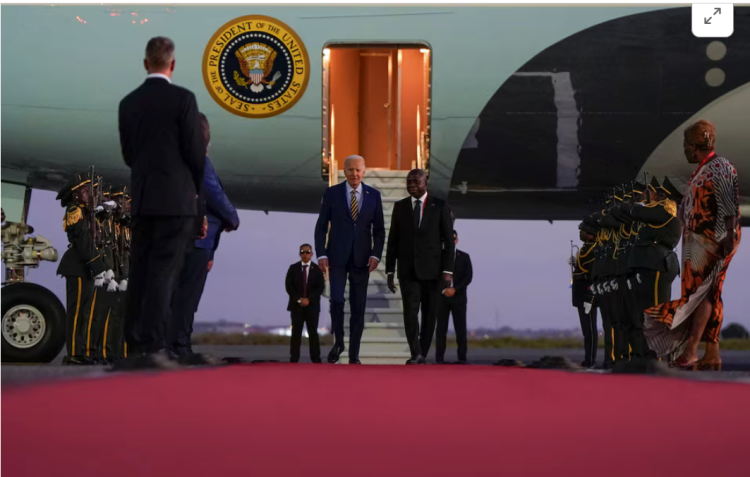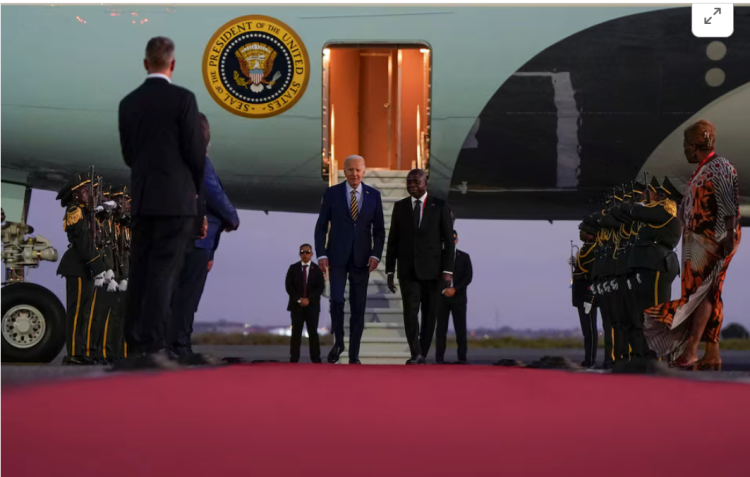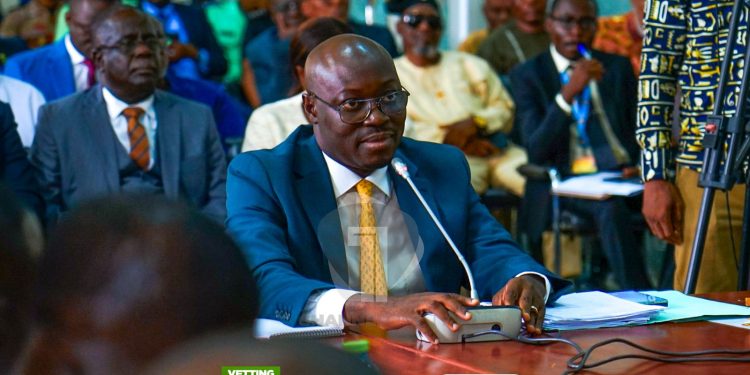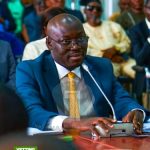During his visit to Luanda on Tuesday, U.S. President Joe Biden pledged sustained American engagement with Africa, emphasizing that it would be on the continent’s own terms. Meeting with his Angolan counterpart, Joao Lourenco, Biden marked his only visit to sub-Saharan Africa as president.

Keeping his promise to visit Africa before his term concludes in January, Biden reiterated the U.S.’s commitment, stating, “We are all in on Africa,” a phrase he first used during the U.S.-Africa summit in Washington in December 2022.
“You should understand the extent to which we’re prepared to be engaged,” Biden said during brief public remarks at Angola’s presidential palace before a private meeting with Lourenco.
“We don’t think we have all answers, but we’re prepared to hear your answers to the needs you have, particularly answers to international debt financing,” he said.
Angolan President Joao Lourenco expressed his desire to strengthen cooperation with the United States in attracting foreign investment and enhancing defense and security ties, including joint military exercises and collaboration in the Gulf of Guinea and the South Atlantic.
He also highlighted U.S. investments in Angola’s oil and gas sector and in upcoming projects such as grain silos and logistics infrastructure.
Lourenco referred to a shift in U.S.-Angola relations, saying, “We’re going to move beyond Cold War relations, where we weren’t always aligned, and make a turning point in relations between the two countries.”

This remark was a reference to U.S. support for one of the factions in Angola’s long civil war, a proxy conflict during the Cold War.
Biden’s visit also focused on the Lobito Corridor, a U.S.-funded railway project aimed at facilitating the export of critical minerals from the Democratic Republic of Congo and Zambia to the west.
Despite Biden’s claims of being “all in on Africa,” U.S. influence has waned during his presidency, with the incoming Trump administration expected to support the railway and maintain a strong partnership with Angola.
Later in the day, Biden was scheduled to visit Angola’s National Museum of Slavery, which highlights the shared history between the U.S. and Angola in the transatlantic slave trade.
The museum includes the 17th-century chapel where enslaved individuals were baptized before being sent to the Americas. Biden’s visit comes amid ongoing discussions in the U.S. on race, inequality, and the legacy of slavery.
However, it is not expected that Biden will address the issue of U.S. reparations during his trip.
























































![[FREE FREE MONEY] Predict and Win a Guaranteed GH¢200 From Us EVERY WEEK](https://wordpress.ghanatalksradio.com/wp-content/uploads/2022/02/Predict-and-Win-Final-09-03-2021-218x150.jpg)
![[Predict & Win – 8th/Oct.] WIN A Guaranteed ¢200 From Us This Week](https://wordpress.ghanatalksradio.com/wp-content/uploads/2021/10/maxresdefault-16-218x150.jpg)
![[Predict & Win – 2nd] WIN A Guaranteed ¢200 From Us This Week](https://wordpress.ghanatalksradio.com/wp-content/uploads/2021/09/maxresdefault-50-218x150.jpg)
![[Predict & Win – 25th] WIN A Guaranteed ¢200 From Us This Week](https://wordpress.ghanatalksradio.com/wp-content/uploads/2021/09/maxresdefault-36-218x150.jpg)
![[Predict & Win – 18th] WIN A Guaranteed ¢200 From Us This Week](https://wordpress.ghanatalksradio.com/wp-content/uploads/2021/09/maxresdefault-23-218x150.jpg)









![[National cathedral] See full list of churches that have contributed since 2018](https://wordpress.ghanatalksradio.com/wp-content/uploads/2020/09/Ghana-National-Cathedral-GhanaTalksRadio-100x70.jpg)



